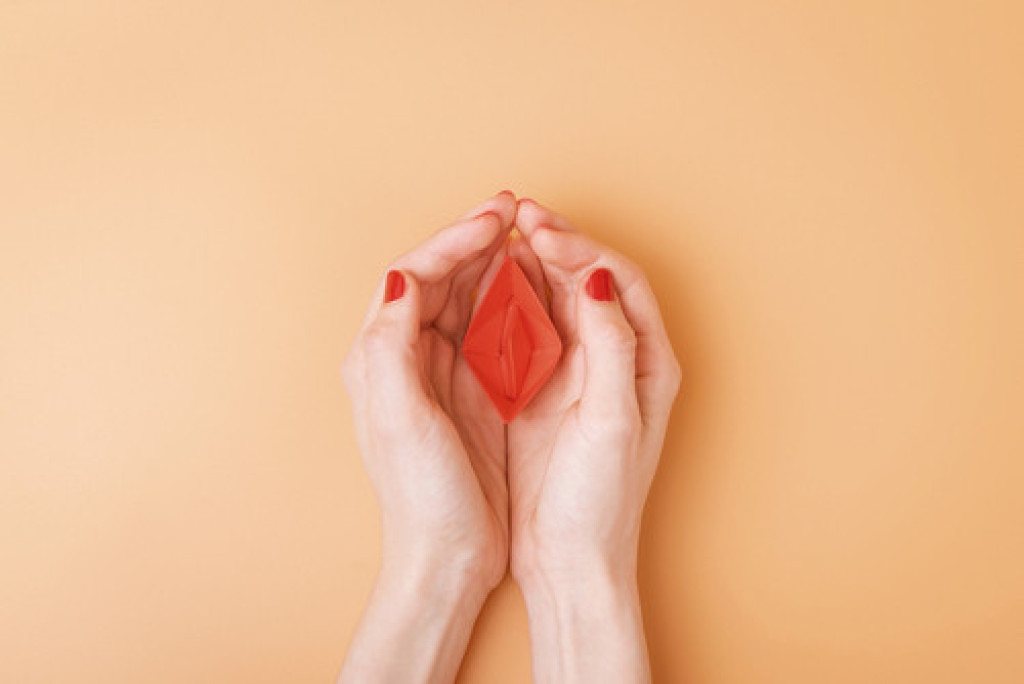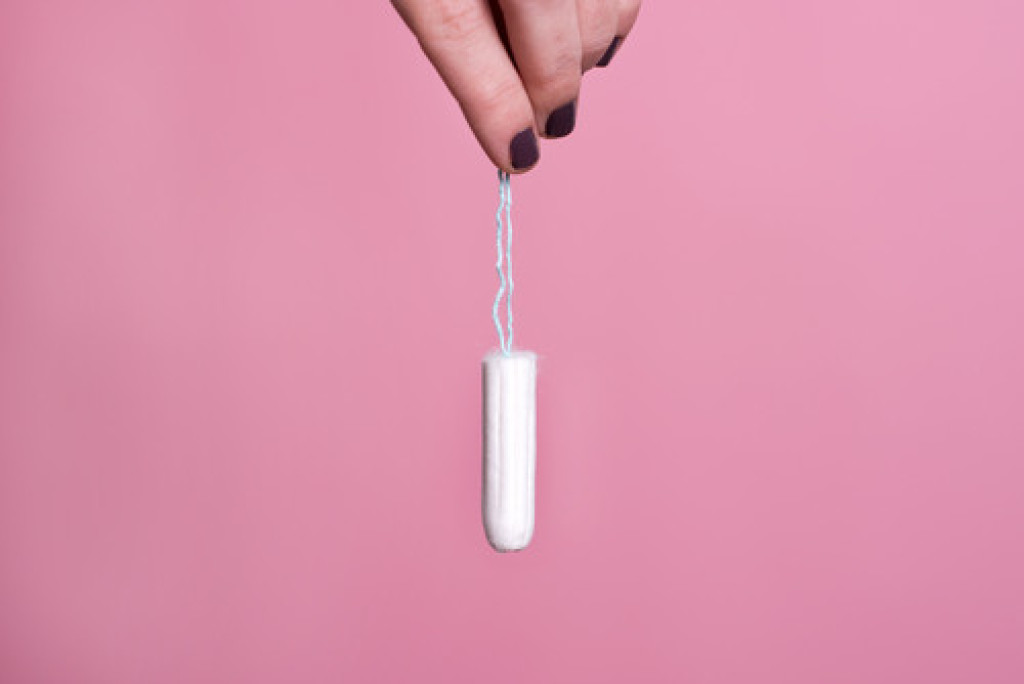
Why is it important to challenge common myths about the vagina?
Throughout history the vagina has been treated and portrayed as a mythical entity by many. Othering the reproductive body part, sexist rumours and myths about the vagina have seeped into everyday knowledge and conversation, pushing the narrative further. In Greek Mythology, the ‘Vagina Detenta’, which is Latin for ‘Toothed Vagina’, refers to the myth that vaginas are lined with teeth, serving as a cautionary tale for men to beware who they have sex with for fear of losing their genitalia. Fast forward to the 21st century and we still see the vagina be shrouded in misinformation and ignorance. There are wellness trends like the vaginal Yoni Eggs, which claim to strengthen the pelvic floor and increase mind to body connection through insertion, or the act of vaginal steaming which doctors and medical experts have warned against trying due to it’s potentially dangerous side effects. These all play a part in continuing the mythification of the vagina.
A lack of information and education about the vulva and vagina perpetuate harmful stereotypes for women and people with vaginas, which deepens feelings of shame and embarrassment. This shame and embarrassment can go on to manifest deeper, stopping many women from having a full understanding of their bodies and even impacting their attitudes toward their health. This can then place a barrier in their way of receiving the healthcare that they need and deserve due to shame and/or misinformation. It’s important that we continue to challenge and educate ourselves and others against myths about the female reproductive system as they only push the taboo around the female body further, by opening up these conversations we provide women and people with vaginas with the platform they need to have full autonomy over their bodies. This is something we at Joii feel very passionately towards.

'Tampons or period cups can get lost inside your body'
Most tampon users have had the irrational fear that their tampon or cup will get lost inside them – ‘What if the string falls off?’ ‘What if my period cup travels up too far and I can never get it back’. Well actually, it’s impossible for a tampon to get lost inside the cervix, so you can breathe a sigh of relief.
As the NHS explain on their website: “It’s not possible for a tampon to get lost inside you. It’ll stay in your vagina after you have inserted it. The only other opening is through your cervix at the top of your vagina. But this is too small for a tampon to pass through.”
Usually, the fear of it getting ‘lost’ is really just the fear of not being able to retrieve it out yourself, which is something that can happen in some circumstances. If that is the case for you, you can simply go to your GP or nearest sexual health clinic where they will have the correct tools to remove it for you.
'Having lots of sex makes the vagina loose'
This is one myth in particular that needs dispelling. The idea that the more sex you have the more your vagina will become loose is entirely untrue and in fact only adds to a harmful narrative that women should not be promiscuous. It is true that the vagina can expand and retract depending on what is required of it. The vagina is naturally elastic and so it will open up in certain situations when necessary, such as during childbirth or when you’re sexually aroused. It will also resort back to its original shape and size when these situations pass.
'The vagina looks the same your whole life'
You wouldn’t assume that your face or body will look the same for your entire life, would you? So why do you expect the same from your vagina? Your vagina changes in shape, size, and even colour as you age and grow. In fact, age is the most common thing that affects how your vagina looks and feels. From pre-puberty the vagina tends to be smaller and tighter, then as you hit puberty you will start to experience secretions through discharge and menstruation while the labia minora will begin to grow in. Changes occur again during peri-menopause and menopause. With lower levels of estrogen, the vaginal lining becomes thinner with fewer folds, it also becomes less elastic and can be dry and sore. After menopause, the vagina will continue to change, your clitoris may shrink, your labia become less full and the vulva can sag. It’s important to note that all of these changes are natural and something to be expected as you age. However, if you have any particular concerns about your vagina as you go through life changes it’s always advised to visit your GP.

'You need to clean your vagina'
This myth pushes the sexist narrative that vaginas are inherently ‘dirty’. Many feminine hygiene products have exacerbated this myth by creating products such as perfumed wipes and douches which claim to ‘clean’ the vagina. Of course, this is not the case as the vagina is actually self-cleaning. How does that work? Well, the vagina is equipped with over 30 different microorganisms, this includes ‘good bacteria’ which helps to maintain a specific PH level, which is slightly acidic. Explaining this, Dr Sherry Ross, author of She-ology spoke on the topic with Good Housekeeping saying: “These organisms produce secretions to naturally clean the vagina, much like the mouth does with saliva and the eyes do with tears.” In fact, washing your vagina can actually do more damage than good, as harsh soaps and douching can throw the vaginal PH out of balance which can increase your risk of infections and vaginal odours.
Instead of washing your vagina, you can wash your vulva. This is the area on the outside of the genitals. Using warm water while you shower you can clean the area by gently spreading the lips apart and cleaning around the folds with a washcloth or your hand. If you want to use soap, make sure that it’s unperfumed.
'Some people just experience painful sex'
Painful intercourse is not, and should not be, the norm. It is a common misconception that sometimes, for some people, intercourse is painful and there is nothing that can be done or should be investigated. A survey by Debby Herbenick, the director of the Center for Sexual Health Promotion at Indiana University, found that out of 1,700 men and women, 30% of women reported pain during their most recent sexual experience, where only 5% of men reported the same. For many people with vaginas, pain during their first number of sexual encounters dominates the narrative. Tears, bleeding, and discomfort are all things that women have come to accept are normal some, if not all of the time during sexual acts.
Once pain becomes a regular component of your sexual encounters, it becomes easier to accept it as normal. However, this should not be the case. Speaking with SELF Magazine, Irwin Goldstein, M.D of sexual medicine at Alvarado Hospital says that attitudes around pain during sex should change, “pain is not what women should experience ever.” Painful sex can be a symptom of conditions such as endometriosis, vaginismus, pelvic inflammatory disease, fibroids, adenomyosis, pelvic floor dysfunction, haemorrhoids, and ovarian cysts, along with STIs too.
For this reason, it’s important to be aware of your pain and discomfort levels during intercourse and the regularity of it too. Knowing that pain should not be an accepted part of your sexual encounters will help you to know when discomfort is hinting at using a little more lube, or if it’s your body trying to tell you something about your health. If you do have concerns about your comfort levels during sex it’s always advised to visit your GP to discuss the issue further.
